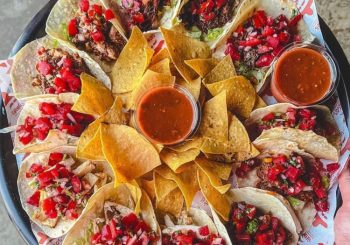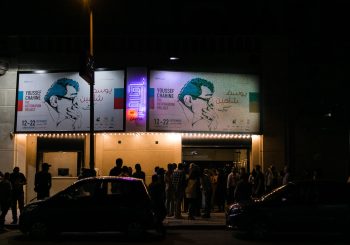The holiday seasons come with laughs, gatherings, and a myriad of food options. The gatherings typically in Egypt feature foods that are delicious and culturally significant. Although holidays like the holy month of Ramadan, Christmas, or Easter can be times and causes for celebration, more often than not, they come bearing unsolicited body shaming comments, judgment, and food policing from people—some close and others less so.
For this reason, the joyous holidays become burdensome—in Egypt and abroad for many—because of feelings of guilt and shame that arise when it comes to food consumption. They can also be triggering for people with eating disorders, which are serious and often fatal illnesses that are associated with severe disturbances in people’s eating behaviors and related thoughts and emotions.
Egyptian Streets reached out to Hana Habib, an Egyptian clinical psychologist and eating disorder specialist, about maneuvering the minefield of body shaming during the holidays, tips on dealing with unsolicited comments, and how to enjoy a guilt-free season.
View this post on Instagram
Habib is a clinical psychologist and nutritionist at Nine Psychology Center, ACPP, GAIA, and O7 Therapy. In addition to her center-based work, Habib also works to raise awareness on eating disorders through social media.
What is the relationship between holidays and food?
In a culture like Egypt, holidays are centered around food and gatherings. Our culture in Egypt is often intertwined with food gatherings, so naturally, people will often feel comfortable talking and commenting on food and body. During holidays like Eid, Ramadan, Christmas, and Easter—where food is an integral part—many people, including friends and family, comment on weight gain, weight loss, and food consumption, without understanding the consequences.
Why are the holidays often burdensome for many?
When I asked people about aspects they find challenging during the holidays, most answers were centered around the unrequested remarks and statements from others. Some people explained that they mainly struggle with the pressure of eating but feeling guilty, people commenting on how much food is on a plate and the number of refills, being uncomfortable eating meals outside of the normal diet, not being able to enjoy festive treats out of fear of weight gain, and eating small portions to feel ‘small’ in front of other people.
How do people’s expectations increase the possibility of disordered eating?
People’s expectations play a large role in disordered eating—especially during holidays and family gatherings. In Ramadan, for example, people have two expectations: either they will lose weight or they will gain it. In the past years, information about intermittent fasting has led many people to believe that Ramadan is the perfect opportunity for weight loss to happen. While that might be true for many people, it puts pressure on others who can’t lose weight easily. Social media has made it more difficult, with the influx of Ramadan weight loss challenges and programs that can lead to disordered eating, stress, and vulnerability to become affected by body-shaming and weight-related comments.
How can people learn to enjoy a guilt-free holiday season?
Set Boundaries
Surviving the holidays, whether with an eating disorder or without, the most important step is to learn how to set boundaries. Setting boundaries can be difficult at first, but voicing against the normalized body-shaming and diet culture in Egypt is an imperative step. There are many ways boundaries can be set, for example, people can try to redirect the conversation, or to simply stress that you are not comfortable in this conversation. Sharing boundaries—ahead of time or during—can make a big difference.
Consider the Context
Another important step is to reframe the comments and conversations. Instead of allowing the comments to be subjects of trigger, remember that the people who comment are also victims of the diet cultures themselves who do not have enough knowledge.
Food is Fuel
Diet culture has led people to believe that food can be labeled as good and bad, and that there are good food days and bad food days. It is important to remember that food is not the enemy, rather, food is fuel and is essential for survival. Attaching worth or celebrating to eating less or more can lead to a cycle of shame and guilt. Hence, breaking the cycle and being kind to one’s body is important.







Comments (0)